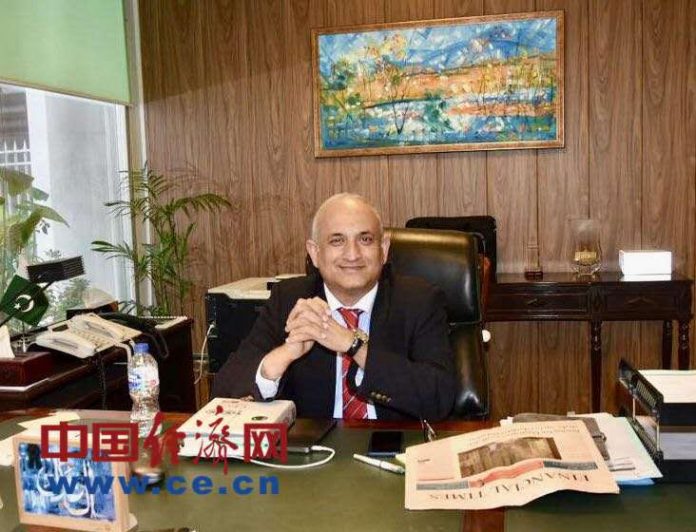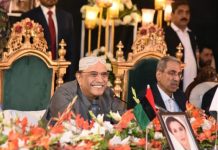DNA/STAFF REPORT
ISLAMABAD, April 30 () The China-Pakistan Economic Corridor (CPEC) could speed up the industrial cooperation in priority sectors, said Haroon Sharif, the former Minister of State and Chairman of Pakistan Board of Investment.
“At this stage, there is a huge scope for investments in the health sector including pharmaceuticals and expansion of hospitals’ network,” said Sharif in an exclusive interview with China Economic Net (CEN).
The CPEC, he said could help strengthening the digital technology- base in Pakistan, as the world moves to remote working. More specifically, there is a huge demand for digital education in the remote areas of Pakistan.
“China should also look at relocating some industries to mitigate future risks,” said Mr Sharif, adding that a number of global buyers would like to have diversified production sources in future rather than taking the risk of dealing with one country.
Pakistan has the comparative advantage in value added textiles, agriculture-based food processing and information technology, he said.
He told CEN it is critical for China to create support mechanisms for priority industrial sectors that can create the majority of jobs in Pakistan, such as agriculture, services and manufacturing.
Amid the COVID-19 pandemic, textiles, food processing and retail will be badly hit. A Small and Medium Enterprise (SME) fund to support these economic sectors will be extremely helpful to keep the momentum of CPEC going.
According to him, focus of CPEC should move towards human development and funds need to be allocated for expanding the health infrastructure as well as essential skills for the labor-force.
About Prime Minister Imran Khan’s public appeal to the Group of 20 (G20) for debt relief to the developing countries, Mr Sharif said it certainly carried weight and strengthened the case for deferral of debt payments till December 2020.
He said, “It is important to understand that there hasn’t been a debt write-off for and it is kind of a rescheduling of repayments. Using it as “debt relief” may cause confusion among general public.”
According to Mr Sharif, this bilateral relief by the International Development Association (IDA) is likely to be extended for one more year. The G20 leaders have appealed to the commercial lenders including global pension and hedge funds to follow the same path.
Sharif said that Pakistan’s foreign debt is around 110 billion U.S. dollars and this year’s repayments are in the range of $10 billion.
This debt suspension will ease pressure on the external account for one year and the overall relaxation of repayments will be in the range of $1 to $2 billion.
Pakistan is likely to reach out to the bilateral lenders including China for deferral of loan payments. Mr Sharif said, “China should look at a potential debt write-off.”
If Pakistan manages to reschedule the debt, it will prove fair amount of fiscal space to focus on the revival of economy which has been badly hit due to COVID-19 pandemic.
It is pertinent to point out that Pakistan’s domestic debt is three times more than the international debt, said Mr Sharif.
He added, while debt relief will ease pressures on government’s fiscal position, investments will be needed to revive the job creating industries.
According to Mr Sharif, the current debt suspension will further ease pressure on the current account, however, the fiscal deficit, is likely to be very high above 9 percent of GDP due to low tax revenues and high expenditures on health and cash transfers to the poor.
Pakistan’s GDP growth is likely to go down to 1 percent in 2020. The recent interest rate cuts will ease some pressure on the fiscal deficit, according to Mr Sharif.
So, it is a testing time for everyone and Pakistan will certainly be looking forward to targeted support from the best friend China, said Mr Sharif.
He said, China has clearly shown global leadership in dealing with this pandemic and it is expected that China will continue its leadership in ensuring regional stability especially in the Belt and Road initiative partner countries. This will prove to the world the real meaning of the term – a community with a shared future for mankind.

















